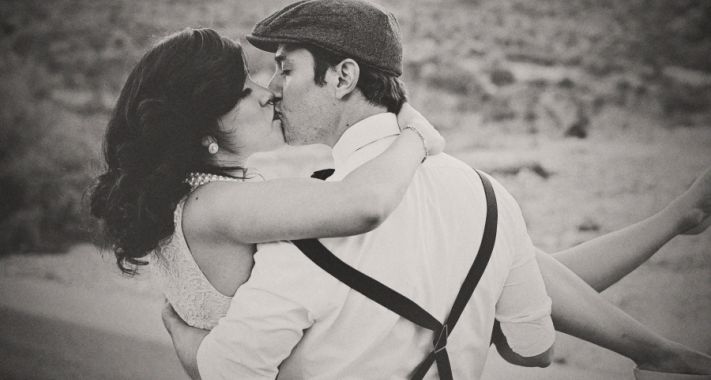How do you love?
Are you scared, timid, careful, fearful or distrustful when it comes to love? Or are you the crazy, greedy or possessive type? Can you love freely, fiercely? Can you hope for the best?
The moment we’re born, we connect to others with love. We need these connections like we need air. Just imagine a tree and its roots: once the tree is strong enough and feels secure and well-rooted enough, it can begin growing. But the roots need soil just like a healthy human needs connections. We all have a deep desire to feel connected even if some of us try to suppress these longings.
Some people might even seem emotionally unavailable – they are like a tree without roots, without any connection to the soil and avoid being “too involved” when it comes to being in a relationship. They seem to live happily under committed but deep down they are afraid of being hurt, left alone, humiliated and ashamed. People with a commitment phobia are afraid of real intimacy even though they crave connections. They tend to get to the “us” phase quite quickly: they get very excited very early on and they start making plans way too soon. They really seem committed but once their partner seems to show signs of commitment, they disappear. All they see is a flashing warning sign and they switch to panic mode.
Did you ever think about the fact that even as embryos we live in a relationship? Embryos exist in a protective bubble, they develop in the amniotic sac. Every time a mother touches her belly, endorphins or hormones of joy are delivered to the baby. From a very early age, we depend on others, we belong to others and we share a bond that last a lifetime. And even though the recipients of our love can change, the pattern remains the same.
Our attitudes to relationships are established in childhood. The most prominent of connections is that of a mother and child: we carry memories of our relationship with our mother for life. The patterns we see as children will have an immense impact on out future connections – they can be changed but they are extremely hard to overwrite. We all have an attachment style from a very early age and some people are just not suited for an intimate, loving relationship.
We carry our mother’s initial reactions with us in our unconscious. The trust, the acceptance, or the lack thereof, we first felt as infants is all there in us. Did she understand your cries? How did she react to your needs? Did she comfort you? Did you feel safe? Did she meet your physical and emotional needs? You’ll face the same issues in a romantic relationship later on for a relationship is understanding each other’s needs and reacting to those needs and desires. That early connection you experience with your mother determines your attitude towards relationships: if you felt like your needs were not met, if you cried and cried and rarely got a response, if you craved attention but didn’t really get any, chances are, at some point in your life, you’ll face the same issues as an adult.
When we learn that being in a relationship is nice and secure and that we can trust and be ourselves, we tend to look at relationships in a more positive way: we’re less afraid of commitment but, at the same time, we’re confident and content on or own. Secure attachment makes us more content, self-confident and encourages a healthy, long-term relationship.
Ambivalent attachment occurs when the child feels neglected or does not feel reassured. People with ambivalent attachment style want more than intimacy: the way they see themselves depends on the behavior of their partner. They tend to be anxious, jealous and moody. They identify love with their partner’s presence.
Children with avoidant attachment style have learned not to show their feelings.They seem to be fine without being in a committed relationship and they don’t need the closeness. They value independence and separateness – this way they don’t need anybody else. They tend to look at their partner as inferior. And while they crave the connection, they are scared of commitment so they end up suppressing their feelings. Once they find themselves in a loving relationship, they get confused and find it hard to cope.
How do you love? Are you scared, timid, careful, fearful or distrustful when it comes to love? Or are you the crazy, greedy or possessive type? Can you love freely, fiercely? Can you hope for the best? Knowing your own attachment style can help you overwrite patterns, muster the courage change and renew your mind despite all your emotional baggage. It is also worth identifying our partner’s attachment style for it will help us accept them more and deepen the connection.
Share this article.


















Comments